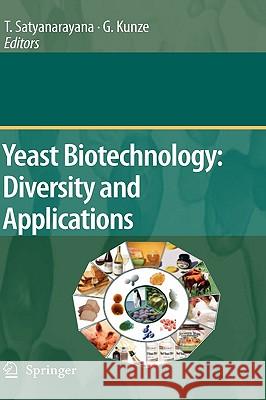Yeast Biotechnology: Diversity and Applications » książka
Yeast Biotechnology: Diversity and Applications
ISBN-13: 9781402082917 / Angielski / Twarda / 2009 / 768 str.
I belie ve that the book would provide an overview of the recent developments in the domain of yeast research with some new ideas, which could serve as an inspiration and challenge for researchers in this field. Ne w Delhi Prof. Asis Datta Dec. 24, 2007 F ormer Vice-chancellor, JNU Director, NCPGR (New Delhi) Pr eface Yeasts are eukaryotic unicellular microfungi that are widely distributed in the natural environments. Although yeasts are not as ubiquitous as bacteria in the na- ral environments, they have been isolated from terrestrial, aquatic and atmospheric environments. Yeast communities have been found in association with plants, a- mals and insects. Several species of yeasts have also been isolated from specialized or extreme environments like those with low water potential (e. g. high sugar/salt concentrations), low temperature (e. g. yeasts isolated from Antarctica), and low oxygen availability (e. g. intestinal tracts of animals). Around 1500 species of yeasts belonging to over 100 genera have been described so far. It is estimated that only 1% of the extant yeasts on earth have been described till date. Therefore, global efforts are underway to recover new yeast species from a variety of normal and extreme environments. Yeasts play an important role in food chains, and carbon, nitrogen and sulphur cycles. Yeasts can be genetically manipulated by hybridization, mutation, rare m- ing, cytoduction, spheroplast fusion, single chromosomal transfer and transfor- tion using recombinant technology. Yeasts (e. g.











